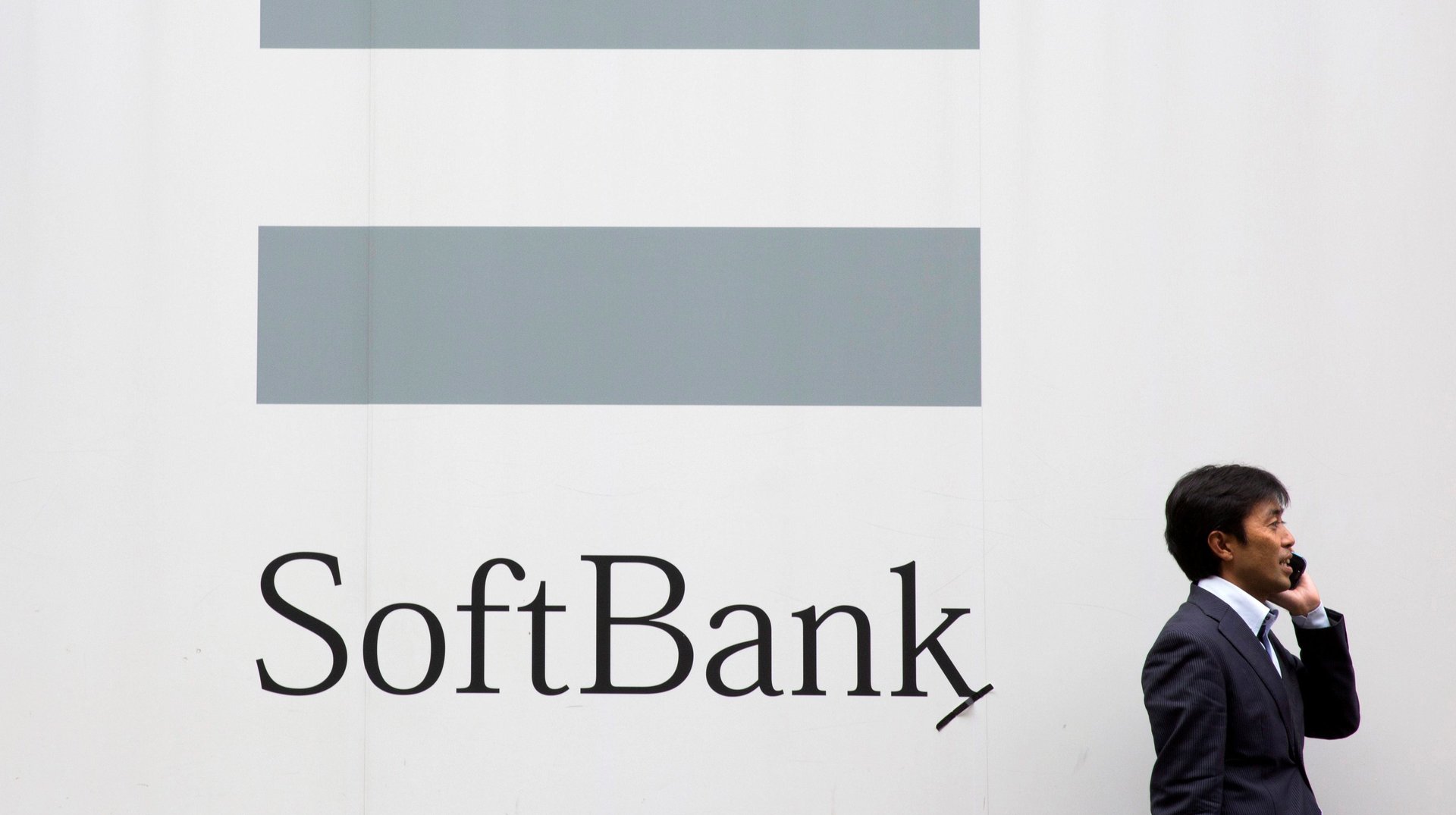SoftBank—not Uber—is the real king of ride-hailing
Uber closed its deal with SoftBank last week, confirming in a statement on Jan. 18 that it was “proud to have SoftBank, Dragoneer, and the entire consortium in the Uber family.” The deal gave the investor group a 17.5% stake in Uber, with SoftBank retaining 15% to become the company’s largest shareholder. SoftBank invested $1.25 billion in Uber at its previous valuation of $68 billion, and also bought up existing shares at a 30% discount, or a $48 billion valuation.


Uber closed its deal with SoftBank last week, confirming in a statement on Jan. 18 that it was “proud to have SoftBank, Dragoneer, and the entire consortium in the Uber family.” The deal gave the investor group a 17.5% stake in Uber, with SoftBank retaining 15% to become the company’s largest shareholder. SoftBank invested $1.25 billion in Uber at its previous valuation of $68 billion, and also bought up existing shares at a 30% discount, or a $48 billion valuation.
The deal clarified something else: SoftBank, not Uber, is the real king of ride-hailing. Before its Uber deal, the Japanese tech giant had invested in India’s Ola, Singapore’s Grab, China’s Didi Chuxing, and Brazil’s 99 (acquired earlier in January by Didi).
Here’s a list of all the ride-hailing funding rounds SoftBank has participated in, according to data from research firm PitchBook, with an asterisk on the deals SoftBank led:
The SoftBank deal expanded Uber’s board to 17 from 11 members, reduced the voting power of early shareholders, and limited the influence held by Uber co-founder and former CEO Travis Kalanick, who sold nearly a third of his 10% stake for about $1.4 billion. SoftBank got two directors on Uber’s board: Rajeev Misra, head of its $100 billion Vision Fund, and Marcelo Claure, president and CEO of Sprint Corporation.
SoftBank is now poised to use its influence to broker peace between ride-hailing companies that might otherwise battle indefinitely and bleed each other dry. According to the Financial Times, Misra wants Uber to focus on growth in the US, Europe, Latin America, and Australia. The FT reported that Misra “insisted that [Uber] exiting unprofitable countries”—read: India, Singapore, and other APAC markets—“was not solely about cutting its losses, which hit $1.5 billion in the third quarter of 2017, but that growth prospects were more promising in its core markets.”
If SoftBank can convince Uber to pull out of APAC markets, SoftBank wins. It secures landgrabs for Ola in India and Grab in Singapore and the rest of Southeast Asia. Didi has been largely in control of China since Uber sold its operations there in August 2016. Uber would be left with the US, Europe, and maybe Latin America and Africa. The resulting map would be one of regional dominance, where the local leader is backed and directed by SoftBank. It might not be the global domination Uber once dreamed of, but it would be a great outcome for its newly christened biggest investor.
This post first appeared in Oversharing, a newsletter about the sharing economy. Sign up here.